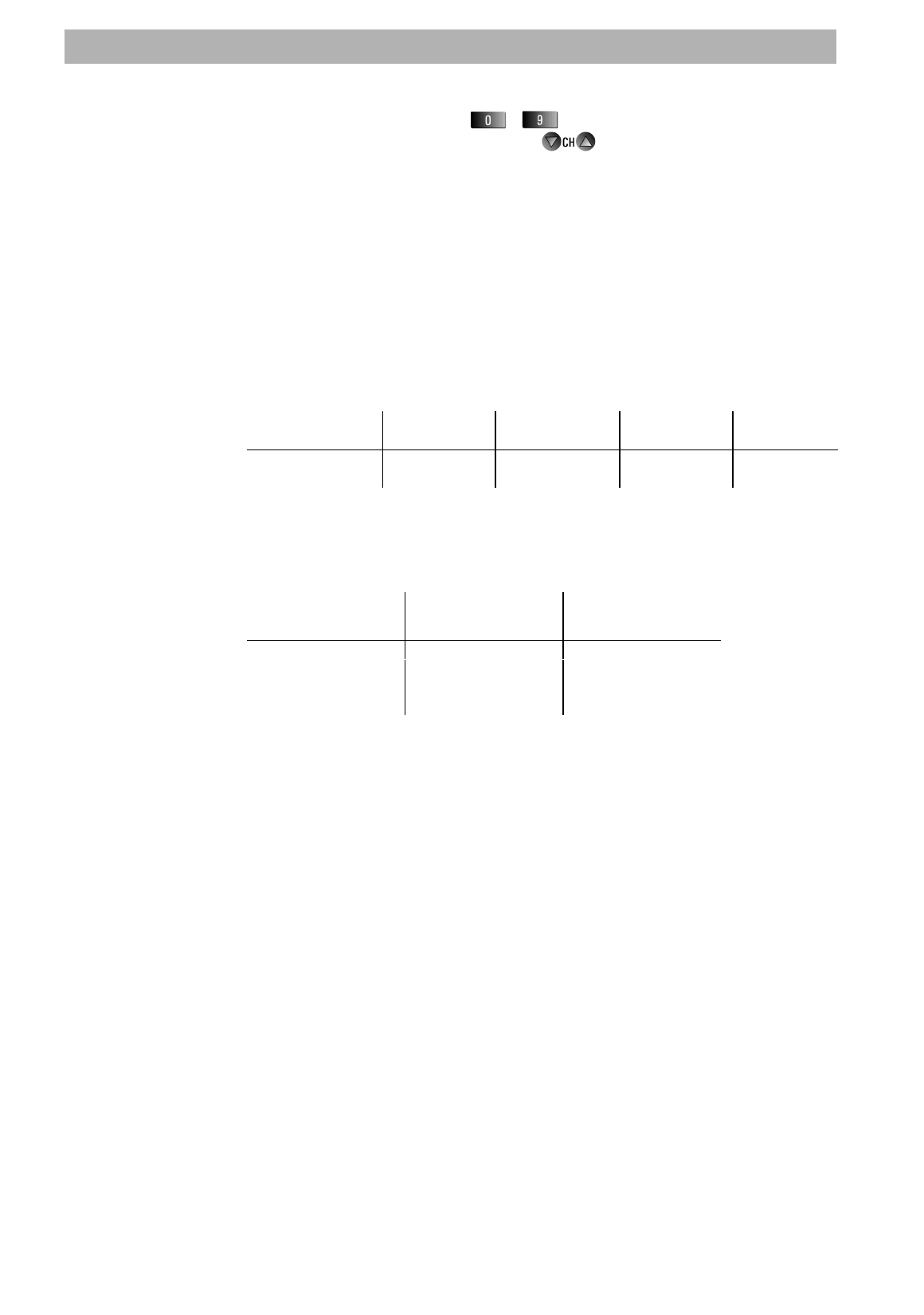
Programming TV programmes
16
Satellite frequency
With input via the numeric keys ...
frequency input is in 5-figure form in
the range
10700
to
12747
MHz. With the
keys you can attain the optimum
receiving frequency by moving in 1 MHz steps (recommended if the picture is
grainy due to weak signals).
Polarisation/Orbit position
In these two menu entries, signal selection is carried out by the LNB supply voltage
and the 22 kHz switching signal, which is superimposed on the LNB supply volt-
age.
Polarisation
In the “Polarisation“ menu entry, the voltage level is used (14 or 18V) to set the
polarity (vertical or horizontal) and the 22 kHz switching signal to select the fre-
quency range (see table).
Frequency range Polarisation LNB voltage Switching
signal, 22 kHz
Setting
10.7-11.7 GHz vertical 14 V Off Vert. Low
horizontal 18 V Off Hor. Low
Orbit position
In the “Orbit Position” menu entry, the 22 kHz switching signal is used to switch
between two (or more) satellites for multifeed receiving systems (see following ta-
ble).
Satellite Orbit position 22 kHz switching
signal
Astra 19.2° east 1 Off
Eutelsat 13° east 2 On
Eutelsat 10° east 3 Off
Eutelsat 16° east 4 On
In the initial setup menu (submenu ”DiSEqC”), setting is carried out for the menu
entry the 22 kHz switching signal is operative for (polarisation or orbit position).
Note
With Astra satellites, only digital signals are transmitted in the upper frequency
band (high-band). Special receivers are also required, however (DVB receiver;
d-Box).
The customary (analogue) signals are transmitted on the lower frequency band
(low-band). The same is also true at the moment for Eutelsat programmes.
•
Select the required polarity therefore as either Vert. Low or Hor. Low only.
In the factory presetting (as delivered), the setting “Pos. A/B” has been chosen in
the “DiSEqC” initial setup menu, menu entry “22 kHz signal”.
The settings Vert. High and Hor. High are not operative.
Video deviation
The satellites transmit their signals with different video deviation, 16 or
25 MHz. The setting has an effect on the picture brightness.
•
Adjust the video deviation to obtain optimum picture brightness.
Oscillator
The receiver is equipped with four LO frequency groups (LO 1 to LO 4), which can
be set to give troublefree matching to different feed systems with different oscillator
frequencies (e.g. Telecom 1A).
In the delivered state, all four oscillator frequencies are set to 9.75 GHz
